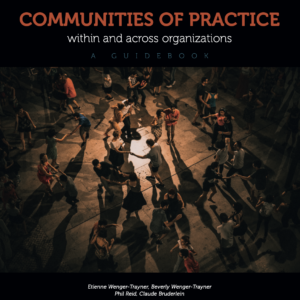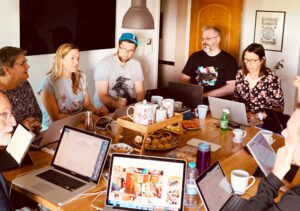NOTICE: There is an updated version of all these FAQs on our new website:
Why should practitioners be involved in developing strategic capabilities?
Traditionally, knowledge has been viewed as something that experts hand down to practitioners. But organizations in all sectors are discovering that something unique happens when practitioners become direct learning partners by forming a community: they bring insights from their engagement with customers and practical challenges; the knowledge they share and create together builds on these insights and challenges; and they can apply this knowledge to their work because it reflects their experience. Admittedly, the experience of practitioners cannot be the source of everything they need to know. So there is definitely a role for specialized experts and researchers. But the contributions of these experts and researchers are more meaningful and useful when they are integrated into an ongoing learning process that is driven by practitioners themselves. In order to reflect the experience of practitioners, a community of practice needs to be self-governing in a fundamental sense. This way, practice can really become the curriculum—in the sense of providing both learning challenges and learning resources likely to be relevant.| << Why should organizations pay attention? | What should an organization put in place? >> |
For more information, click here:
For a more precise definition, see our theory page on communities of practice:
For a bit more info, see our general (but brief) introduction to communities of practice and their use in various contexts:
For practical advice on cultivating communities of practice within and across organizations, see our new guidebook:
For workshops on cultivating communities of practice in organizations:



Pingback: Blog Post 2. My Practice and Community. | keanemindlab